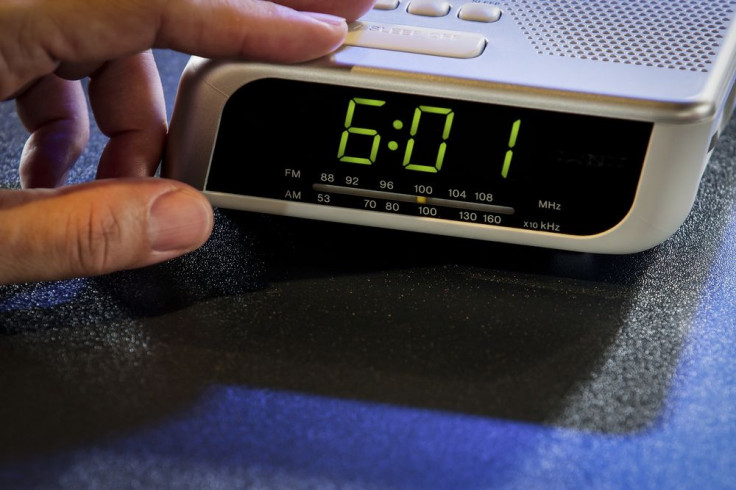How Much Sleep Do You Need? National Sleep Foundation Revises Recommended Hours Of Shut-Eye

Eight hours of sleep is what is commonly regarded as the ideal night's rest. Still, as found in a survey from the National Geographic Channel, as many as 73 percent of Americans aged 18 and older self-report that they sleep less than that each night. In light of that, the National Sleep Foundation has recently updated its recommendation for the ideal amount of sleep to better reflect the importance that age has on one’s resting patterns. Based on their results, however, many of our sleeping habits aren’t making the cut.
The recent report on the recommended amount of sleep by the nonprofit foundation was put together by a panel of sleep experts after "multiple rounds of consensus voting after a comprehensive review of published scientific studies on sleep and health," the press release read. It is now published in the online journal Sleep Health: The Official Journal of the National Sleep Foundation and includes both new age categories and widening in the duration of sleep for many groups.
Recommended Hours Of Sleep Based On Age
Newborn (0-3 months): 14-17 hours (previously: 12-18 hours)
Infant (4-11 months): 12-15 hours (previously: 14-15 hours)
Toddler (1-2 years): 11-14 hours (previously: 12-14 hours)
Preschooler (3-5 years): 10-13 hours (previously: 11-13 hours)
School-age child (6-13 years): 9-11 hours (previously: 10-11 hours)
Teen (14-17 years): 8-10 hours (previously: 8½-9½ hours)
Young adult (18-25 years): 7-9 hours (new category)
Adult (26-64 years): 7-9 hours (no change)
Older adult (65+ years): 7-8 hours (new category)
Of course, these hours are simply a guideline. In reality, the ideal amount of sleep differs for each individual. “If you can function during the day, then you’re getting enough sleep,” Dr. Andrew J. Westwood, assistant professor of Clinical Neurology Division of Epilepsy and Sleep Disorder at Columbia University Medical Center in New York City, previously told Medical Daily. “The average person needs usually between seven and eight hours of sleep, but everyone is different. If you feel fine and can function well during the day on three hours of sleep, then you don’t need to worry.”
Short Sleeper Or Just Fooling Yourself?
Some individuals, known as "short sleepers" are able to not only survive but thrive on extremely small amounts of rest. According to CBS, for these individuals anything under six hours of sleep leaves them feeling just as refreshed as a lazy Sunday rise will leave the rest of us. It appears that their ability to thrive on such little sleep is genetically based. However, there is a clear line between true short sleepers, who are believed to make up only around one percent of the population, and those who are simply not getting enough rest.
"I have never actually met a true short sleeper," Dr. Charles Bae, a sleep specialist at the Cleveland Clinic, told CBS News. "Most people who say they don't need a lot of sleep don't have that gene and they are just fooling themselves."
Source: Hirshkowitz, M, Whiton K, Albert SM, et al. National Sleep Foundation’s sleep time duration recommendations: methodology and results summary. Sleep Health. 2015.



























